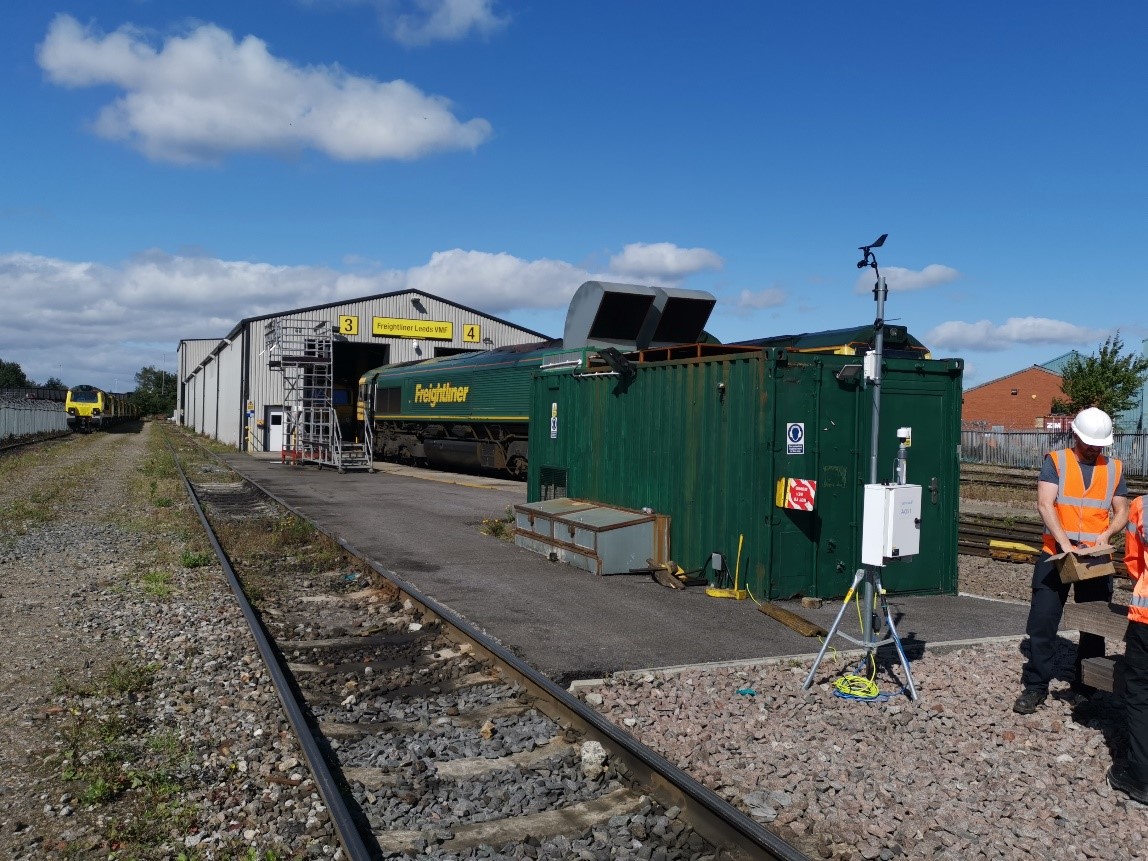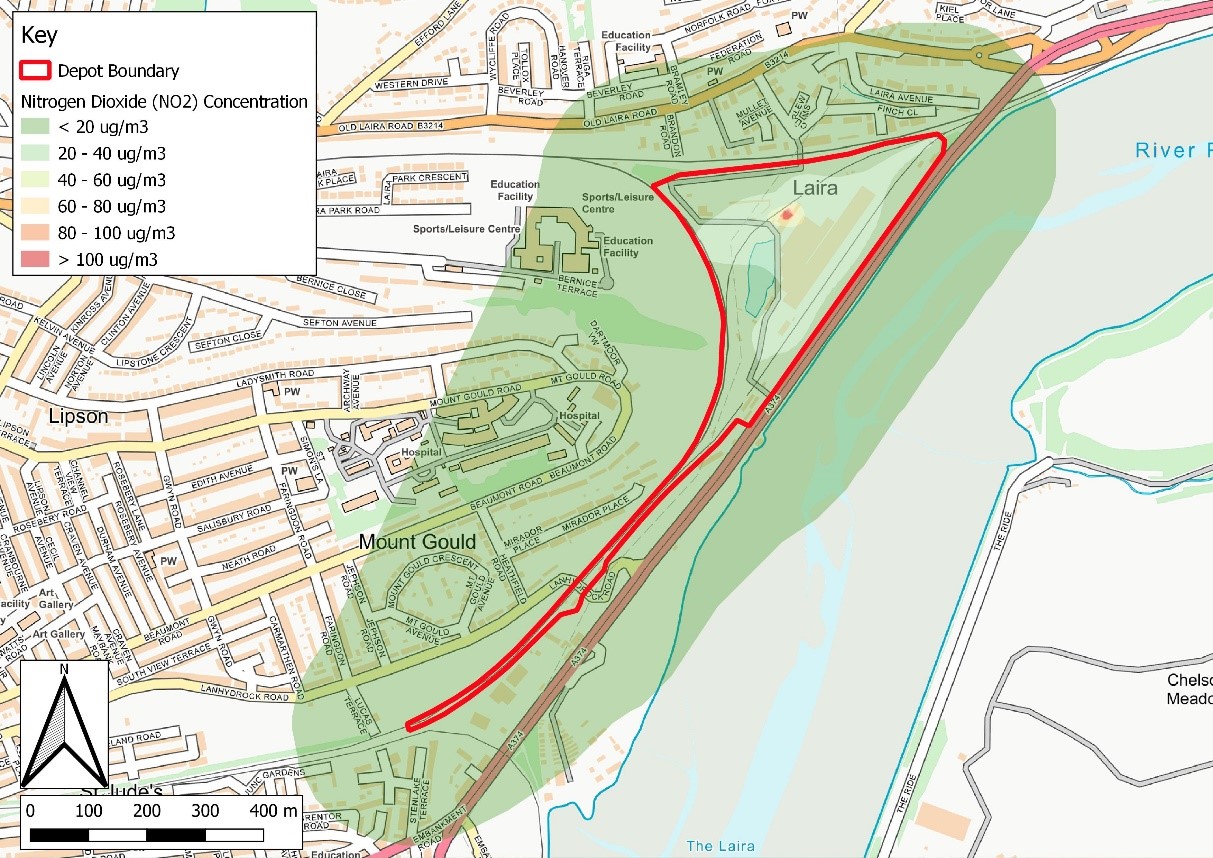Air Quality Assessments at Depots
Introduction
In Great Britain, there is little evidence available on overall emissions from train depots and how these emissions affect air quality in public areas surrounding the depot. At the request of various rail industry organisations, a detailed study is required in Great Britain to understand how train depots impact local air quality.
This project assessed the air quality at six selected passenger and freight depots across the country. The baseline air quality was determined using both diffusion tubes and real-time monitoring equipment. The emissions from the various sources within the depots, including for example trains, road vehicles, non-road mobile machineries, other combustion plant, were established through the collation of site-specific activity data and accurate emission factors. The impact on local air quality was determined through the use of state-of-the-art dispersion modelling.
Key findings
The monitoring data gathered suggested that it is unlikely air quality standards would be exceeded at the perimeter of the selected depots. The study has shown a variety of activity levels, and hence emissions, between daytime and night-time at the depots.
In general, the assessments have shown the selected depots have a relatively limited impact on ambient air quality beyond the depot boundary. Despite this, appropriate mitigation measures have been identified that could further reduce emissions from the depots, and hence further reduce any air quality impact. The effectiveness of these mitigation measures have been quantified within the study.


